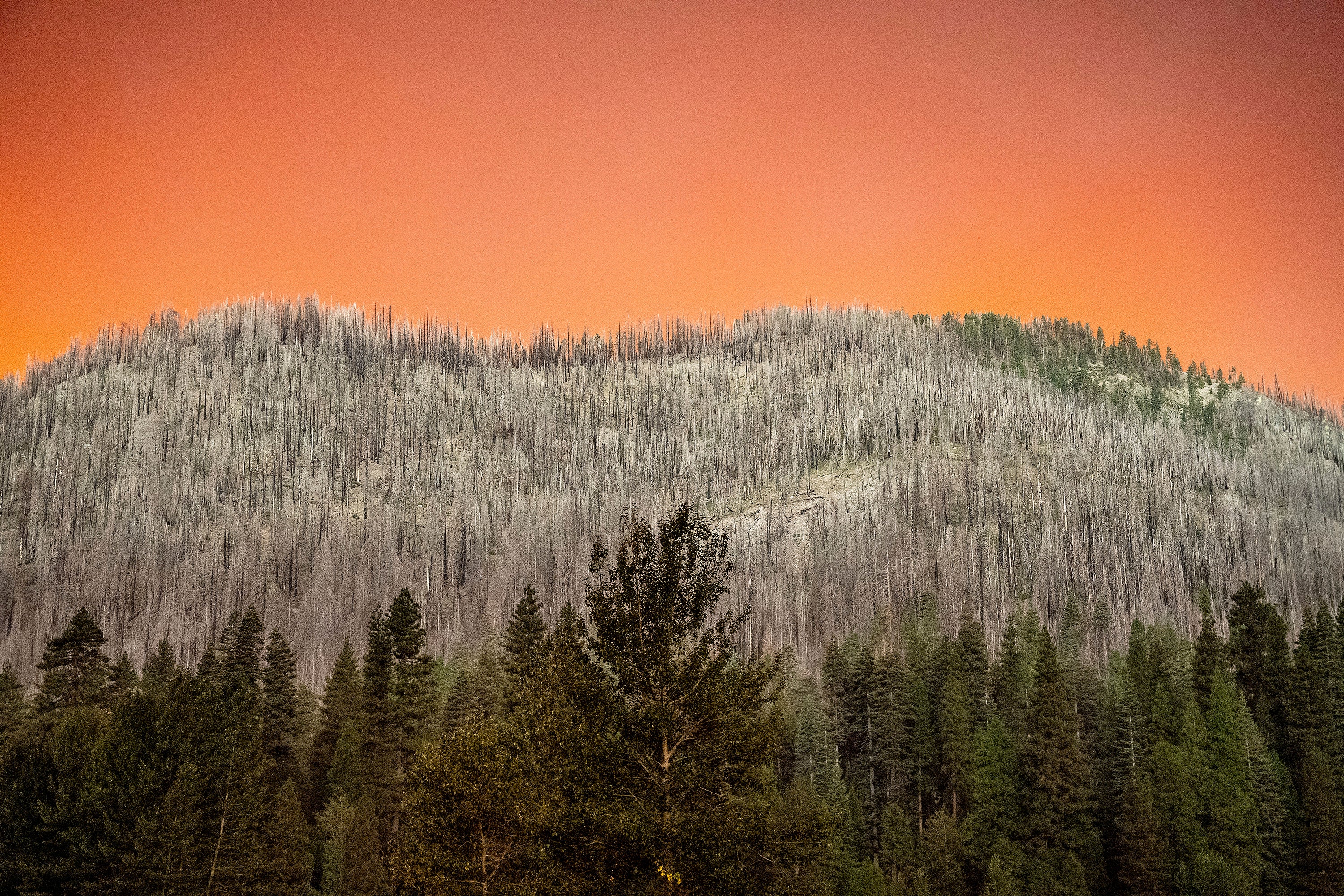Study links wildfire smoke to dementia
The findings come as millions spent the weekend under air quality warnings from wildfires spewing smoke across the US

Your support helps us to tell the story
From reproductive rights to climate change to Big Tech, The Independent is on the ground when the story is developing. Whether it's investigating the financials of Elon Musk's pro-Trump PAC or producing our latest documentary, 'The A Word', which shines a light on the American women fighting for reproductive rights, we know how important it is to parse out the facts from the messaging.
At such a critical moment in US history, we need reporters on the ground. Your donation allows us to keep sending journalists to speak to both sides of the story.
The Independent is trusted by Americans across the entire political spectrum. And unlike many other quality news outlets, we choose not to lock Americans out of our reporting and analysis with paywalls. We believe quality journalism should be available to everyone, paid for by those who can afford it.
Your support makes all the difference.Wildfire smoke may be worse for brain health than other types of air pollution, according to new research linking it to an increased risk of dementia.
The findings, reported at the Alzheimer’s Association International Conference in Philadelphia, come as millions spent the weekend under air quality warnings from wildfires spewing smoke across the western U.S.
At issue is fine particulate matter or PM2.5 – tiny particles about 30 times smaller than the diameter of a human hair that can be inhaled deep into the lungs and move to the bloodstream. This pollution – from traffic, factories and fires – can cause or worsen heart and lung diseases, and the new study adds to evidence it may play some role in dementia, too.
Researchers tracked health records from 1.2 million older adults in Southern California between 2009 and 2019. They used air quality monitoring and other data to estimate residential exposure to PM2.5 over three years from wildfire smoke or other causes.
The study found the odds of a new dementia diagnosis increased about 21% for every 1 microgram increase in the concentration of wildfire particles. That compared with a 3% increased risk for every 3 microgram jump in non-wildfire particles, concluded researchers from the universities of Washington and Pennsylvania.
It’s not clear why there would be a difference. But with wildfires increasing, this needs more study, said Alzheimer’s Association chief science officer Maria Carrillo. That's especially considering that the risk of Alzheimer’s, the most common form of dementia, is higher for lower-income populations who may have a harder time avoiding unhealthy air, she said.

Health warnings urge staying indoors when air quality is poor but “there are a lot of people who don't have the option to stay home or they work outside,” she noted.
Firefighters made progress and were aided by improving weather on Sunday in the battle against wildfires covering massive areas and leaving a trail of damage in the western United States, but further evacuations and resources have been necessary as thousands of personnel tackle the flames.
The so-called Park Fire, the largest wildfire in California this year, was one of more than 100 blazes burning in the U.S. on Sunday, according to the National Interagency Fire Center. Some were sparked by the weather, with climate change increasing the frequency of lightning strikes as the western U.S. endures blistering heat and bone-dry conditions.
The Park Fire had scorched an area greater than the city of Los Angeles as of Sunday, darkening the sky with smoke and engaging thousands of firefighters. The blaze spanned more than 562 square miles (1,455 square kilometers) of inland Northern California.
Millions of people were under air quality alerts Sunday in the northwestern U.S. and western Canada.